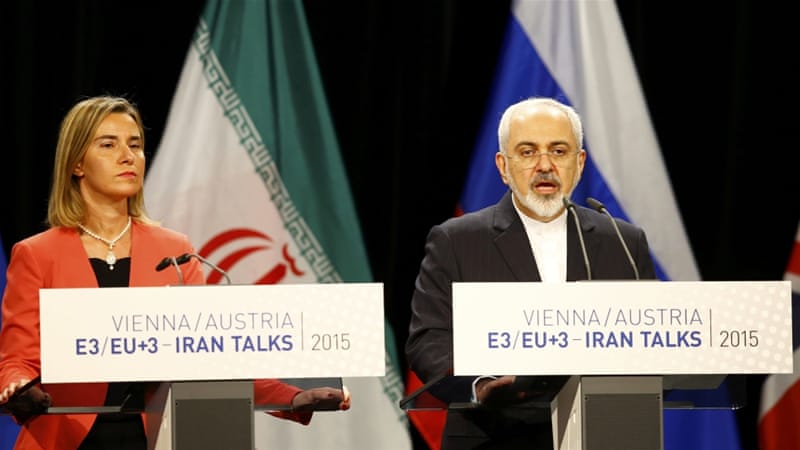The weak Iranian nuclear agreement adopted by the former US administration and signed by Iran is partially responsible for North Korea’s rush to develop its own nuclear program.
Iran was rewarded $150 billion, with profits, as part of the deal after funds withheld since Shah’s time were returned. It was also granted massive contracts to develop its technical and industrial capabilities and most of the international sanctions imposed had been lifted.
Besieged North Korea chose to blackmail the world also because it seems a profitable trade. Iran used to threaten to burn Israel down, and now North Korea is threatening Japan. Its second nuclear missile test two weeks ago was successfully launched over Japan.
There is no more doubt that North Korea is dangerous.
Washington is now before two choices: either grant North Korea’s leader Kim Jong-un an agreement similar to that of Iran or end the agreement with Tehran and suggest new ideas to ensure both countries are denied their nuclear capabilities.
During a seminar at the Enterprise Institute, United States Ambassador to the United Nations Nikky Haley linked between the two threats. She warned that an agreement with Iran, if unchanged, will allow Tehran to pose the same threat as that of North Korea.
Can the current US administration put an end to the agreement signed between the western states and Iran two years ago?
Even Ambassador Haley stated that the agreement will not be totally abandoned. However, she called for amending the agreement in a way that it doesn’t allow the regime to secretly develop military nuclear powers. The deal is linked to Iran’s behavior in the region especially that its troops and militias are fighting in several countries.
Time is short and President Trump should announce his position. He has almost two weeks to inform the Congress whether Iran is abiding by the agreement or not. If he says no, then the Congress will re-impose sanctions, which if truly returned, Iran had threatened that it shall consider the agreement annulled and will resume its military nuclear program and production of highly enriched uranium.
Regional and Gulf countries are spectators and they do not have the capability to stop the Iranian regime or terminate the agreement.
Since the beginning, Gulf’s point of view had been that agreement is good in principle, but the signed deal is bad as it postpones production of military nuclear power and doesn’t terminate it, especially that lifting the sanctions is not conditioned by Iran’s suspension of its hostile military activity.
If, within the next few years, Tehran succeeded in gaining control or dominating major states like Iraq and Syria, Iran’s power to impose its military nuclear project will double. Then, the nuclear agreement will be rendered useless and it will be difficult for the international community to impose sanctions considering its massive influence.
Iran observes current developments because how Trump will react towards North Korea will be a message to it as well. Trump is not Obama. He won’t send gifts and won’t be silent over any insult. At least, that’s how I see things.
